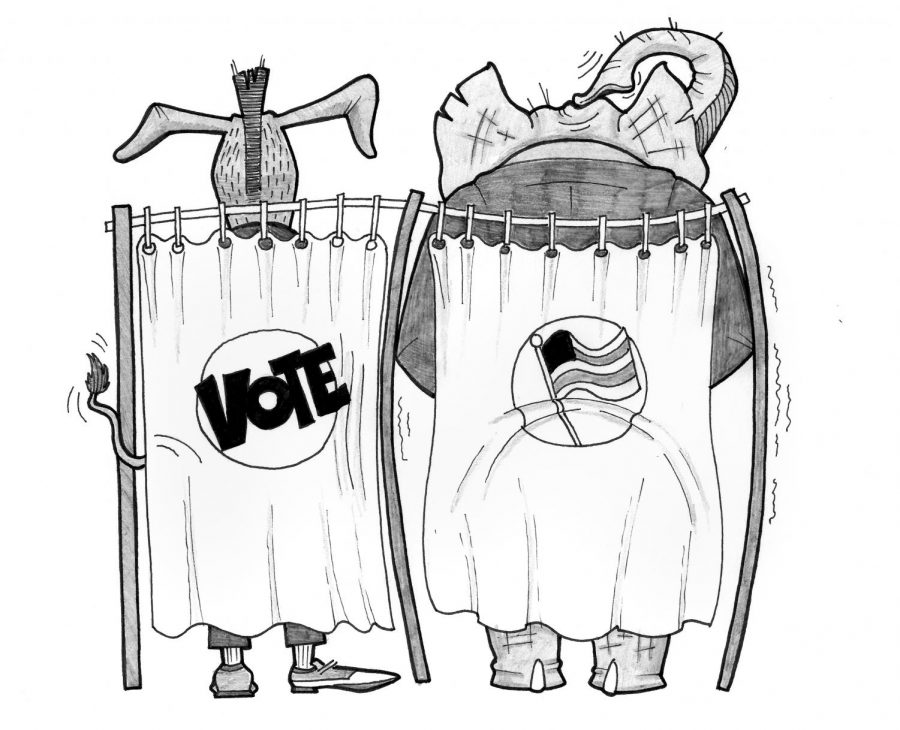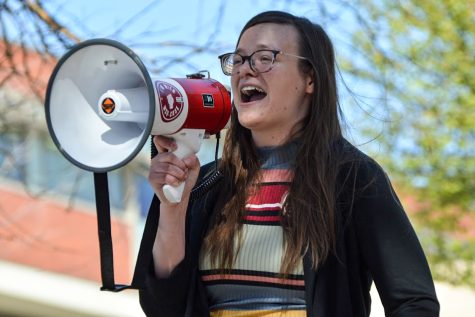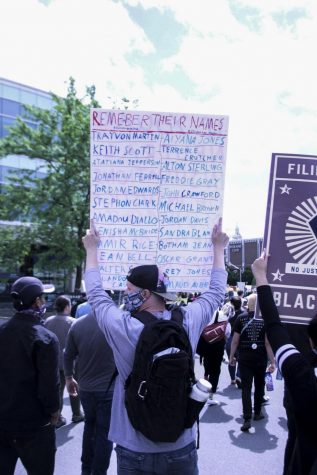Voter ID laws are discriminatory
NICK SANDIFER | The Daily Evergreen
Producing identification when registering to vote has been an issue of debate for decades amongst Republicans and Democrats.
November 2, 2017
Voter identification laws in the U.S. have proven to be a costly solution to a problem that is a mountain made out of a molehill — with the cost being the legitimate votes of citizens often targeted for disenfranchisement because of race, class or ethnicity.
Supporters of stricter voter ID requirements use statistically irrelevant evidence to base their claims. About as many people report alien abductions as commit voter fraud. The body of work studying voter impersonation and other related voting fraud crimes shows that they are not only exceptionally rare, they certainly don’t affect elections.
Starting in 2001, the Bush administration’s Justice Department studied voter fraud. Over a five-year period, they found just 120 people charged with voter fraud, and only 86 convicted. The conservative Heritage Foundation conducted a study of all election crimes ranging from 1994 to the present, and found just 15 convictions of voter impersonation over this period. The majority of cases found by the Heritage Foundation were in the areas of absentee ballot fraud and duplicate voting. Accurate enforcement of voter rolls prevents these crimes, voter IDs do not.
So what do these minimal, marginal cases result in policy-wise? They are routinely used as the excuse for discriminatory policy designed to make voting harder and elections easier to win.
The strict Texas voter ID laws were recently struck down in federal court, in Veasey v. Abbott, and was found to have a racially discriminatory intent. In the process of passing the law, even when amendments were offered to ease the racial animus of the bill, they were routinely rejected by the party in power, revealing the true purpose behind the bill.
In Wisconsin, parts of the state’s voter ID law were found to place an unconstitutional burden on voting in Frank v. Walker. Department of Motor Vehicles locations were routinely closed and had their hours cut, with one ID office in Sauk City only open on the fifth Wednesday of every month. Wisconsin’s ID law prohibited the use of veteran’s ID cards, some student ID cards and, according to the judge, enacted “high hurdles” to obtaining an acceptable voting ID.
In North Carolina, a voter ID law was found to be enacted with substantial racial bias, as established by NAACP v. McCrory. The court found that upon the legislature’s receipt of data that showed African Americans were voting in increasing numbers, in fact, in numbers similar to white Americans, they rushed to enact a voter ID law that placed a significant discriminatory burden on African Americans. The federal court found that the law targeted African Americans with “surgical precision.”
In all, the discriminatory laws being enacted across the country reveal that a powerful intent to discriminate lies behind the enactment of voter ID laws in the U.S., and groups wishing to enact such laws cannot be trusted with preserving the security of our elections and the sanctity of our right to vote.
The Young Democrats of WSU applaud any and all efforts to extend the franchise, reduce discrimination in our voting systems and ease barriers of entry to voting, while ensuring the security of our elections against foreign influence. In Minor v. Happersett, the Supreme Court noted that the right of suffrage may in fact be extended to noncitizens. We support suffrage for noncitizens who can establish long-term residency, especially in local elections where the resident needs a voice the most.
The best way to fix our democratic institutions is to participate early, often and with passion. Start by turning in your ballot for this November’s local elections, and continue by contacting your representatives, publicly protesting, writing in to newspapers that senators read and supporting organizations that reflect your views.

















